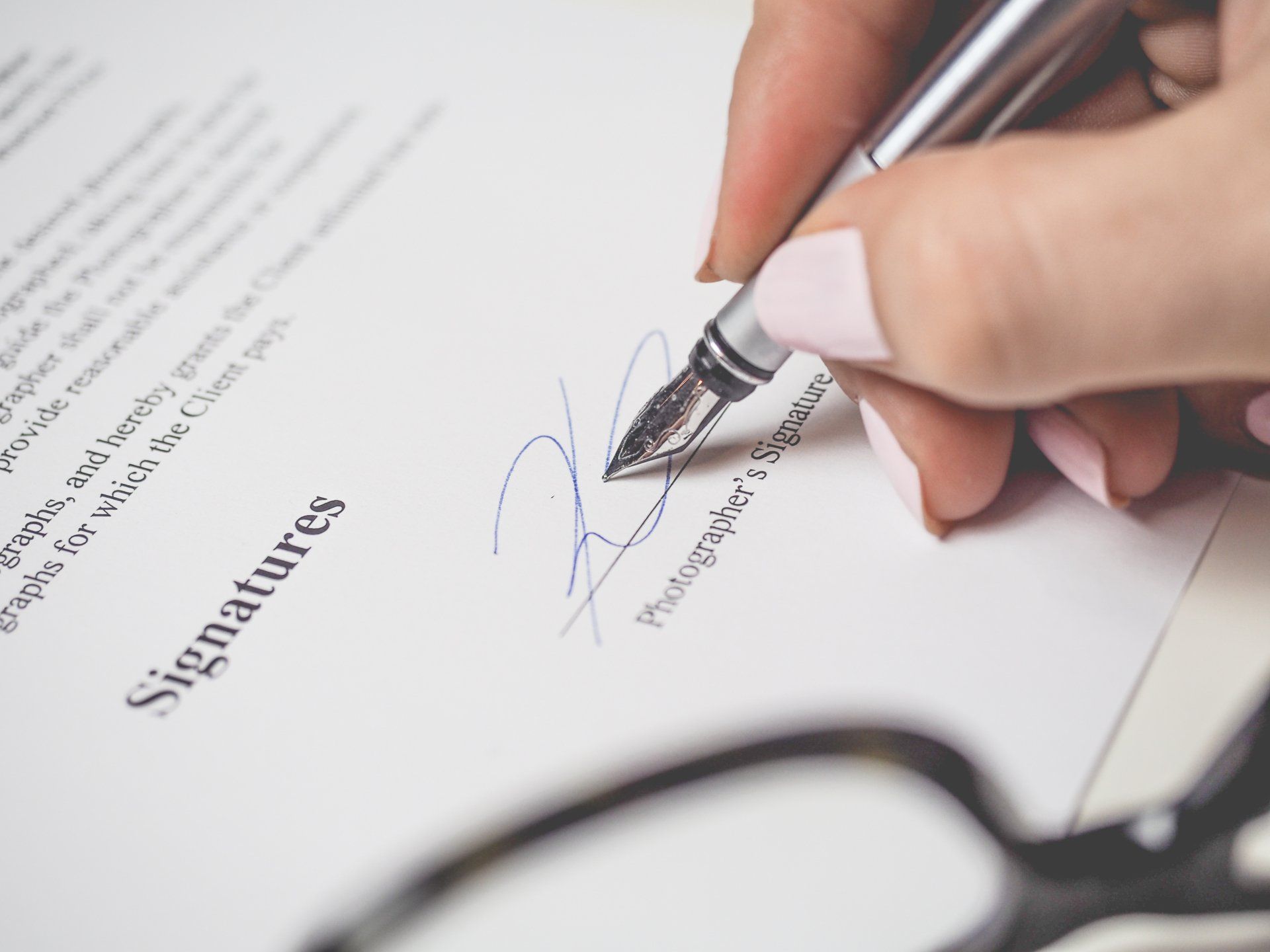Article: Demystifying Will Formalities
Demystifying Will Formalities
Writing a Will may appear to be a simple exercise for some; however, writing it is just the start. If the formalities are not satisfied, then despite having written your Will, you could still die intestate if your Will is deemed invalid. Speak to our expert team today to ensure your Will is legally valid. Below we answer some ‘FAQs’ on Will formalities:
How do you execute a will?
The standard formalities for executing a will are:
- The will must be in writing, and the testator must sign it, or another person must sign it in their presence and at their direction
- It must appear that the testator intended by their signature to give effect to the will
- The signature must be either made or acknowledged in the presence of at least two witnesses present at the same time
- Each witness must sign the will, or acknowledge their signature, in the presence of the testator (but not necessarily in the presence of any other witness
Who can witness a will?
A will can be witnessed by anyone over 18 with mental capacity as long as neither they nor their spouse/civil partner benefit from it.
How many people should witness a will?
Two people should witness the testator’s signature and then they must also sign the will in the presence of the testator
Does a will need to be dated?
There is no legal requirement for a will to be dated; however, when there is doubt as to the date of the will, evidence may be requested by the Probate Registry following the testator’s death to prove that the will admitted to Probate is their last will. To avoid ambiguity, the will should always be dated. The will should be dated the day that it is executed. For guidance on preparing a valid will, contact our team today.
Can a will be altered or amended?
It is possible for a testator to change their will without making an entirely new will – this can be done by the preparation and execution of a codicil. Alterations could also be made to the will already in existence following its execution, providing that the alterations are done correctly, are clear and executed (i.e. with the testator and witnesses’ initials beside the alteration/s). Many complications can arise from alterations made to an existing will therefore the best way to update your wishes and make changes to your will is by writing a new one.
Should a will be handwritten or typed?
It is strongly recommended that a will is mostly typed (save for the date, signature and witnesses' names, addresses and signatures) to ensure it reads clearly and subsequently printed on durable paper. It is, however, possible that a will could be handwritten – also known as a holographic will. A holographic will could be written using a pen or pencil, though there is a presumption that where a combination of both pen and pencil has been used, the parts in pencil that the testator had not yet made a definite decision on are likely to fail.
What if the testator is unable to sign their will?
If the testator is unable to sign their will due to a physical disability, perhaps, then they can mark the will. The mark doesn’t need to take a prescribed format; however, the mark must be intended by the testator to give effect as their signature. A will may also be signed by someone else on the testator’s behalf as long as they do so at the direction of the testator and in their presence.
Preparing a Will, not so simple after all!
At
Blackhams Solicitors, we oversee the execution of all Wills that we prepare, giving your wishes the best possible chance of being upheld following your death and your Will not failing on a technicality.
Seek the assistance of a qualified professional in both the preparation and execution of your
Will.
Get in touch on 0121 233 6900 or email us at
info@blackhams.com for your free consultation.
Article written by Michelle Abbott TEP, Head of Private Client Department.
Posted: 10 October 2023








